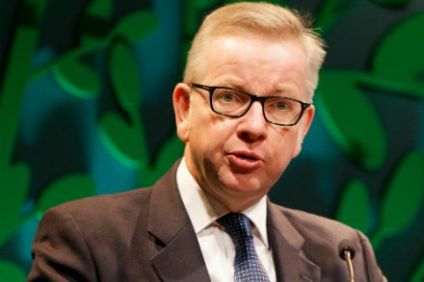
Michael Gove, the UK’s environment, food and rural affairs secretary, has warned delegates at a farming conference a no-deal Brexit could see severe disruption and “turbulence” for the UK’s food industry.
Speaking at the Oxford farming Conference today (3 January), he said the UK leaving the European Union (EU) on 29 March without a trade agreement in place could see tariffs of 40% or more put on some British exports.

Discover B2B Marketing That Performs
Combine business intelligence and editorial excellence to reach engaged professionals across 36 leading media platforms.
“It is important to be straight about the really significant challenge which would be posed by a no-deal Brexit,” he said.
He added: “Of course, a nation as adaptable, resilient and creative as ours can and will flourish over time, even without a deal.
“But the turbulence which would be generated by our departure without a deal would be considerable. As I said earlier, it would hit those who are our smaller farmers and smaller food businesses.”
Gove went on: “It’s a grim but inescapable fact that in the event of a no-deal Brexit, the effective tariffs on beef and sheep meat would be above 40% – in some cases well above that.”

US Tariffs are shifting - will you react or anticipate?
Don’t let policy changes catch you off guard. Stay proactive with real-time data and expert analysis.
By GlobalDataThe environment secretary said that tariffs are not the only issue.
“While the EU have pledged to accelerate the process whereby the UK is recognised as a third country and we can continue to export food to their markets freely, all products of animal origin will have to go through border inspection posts and, at the moment, the EU have said 100% of products will face sanitary and phytosanitary checks,” he said.
He added: “The combination of significant tariffs when none exist now, friction and checks at the border when none exist now and requirements to re-route or pay more for transport when current arrangements are frictionless, will all add to costs for producers.”





